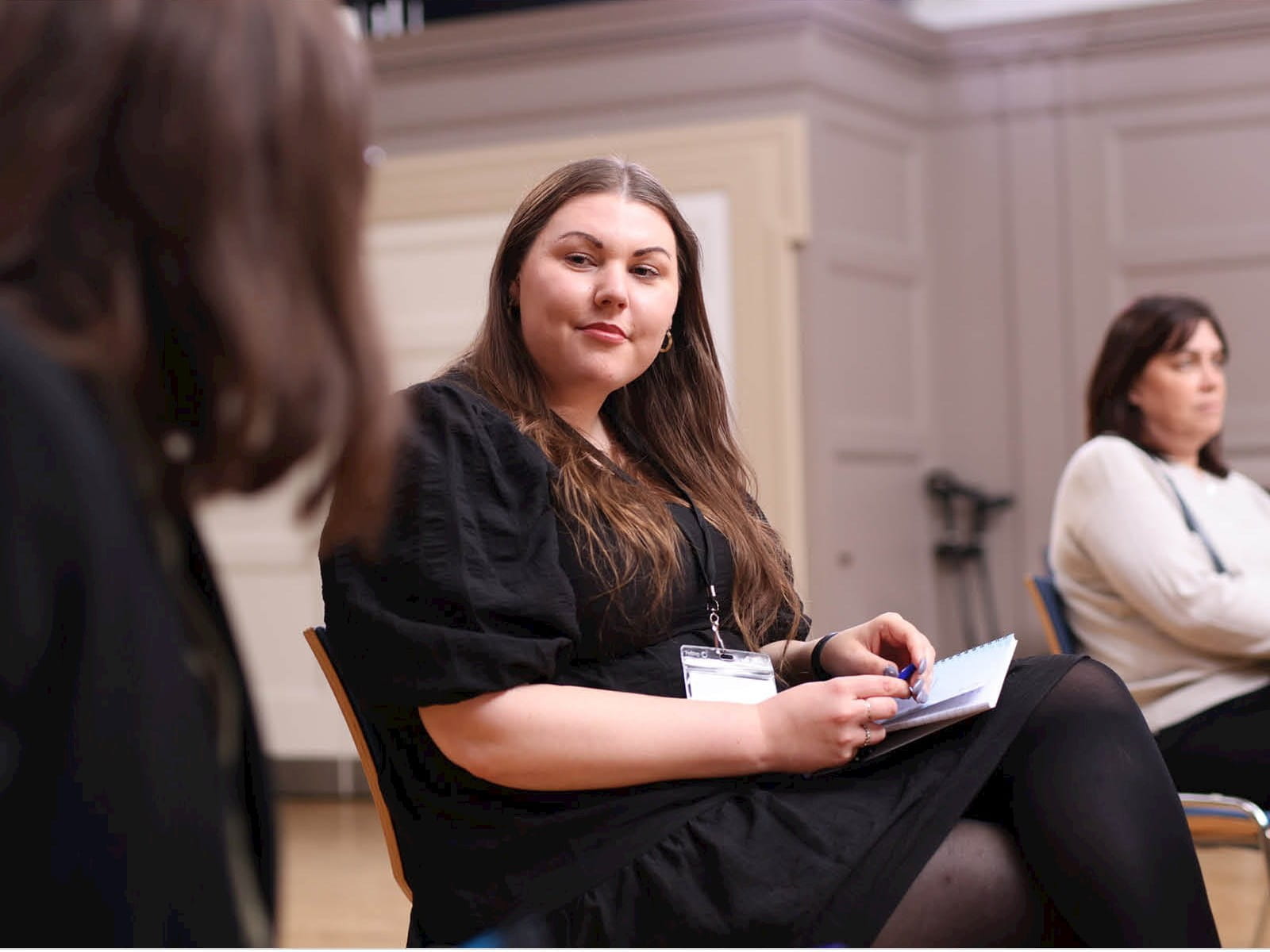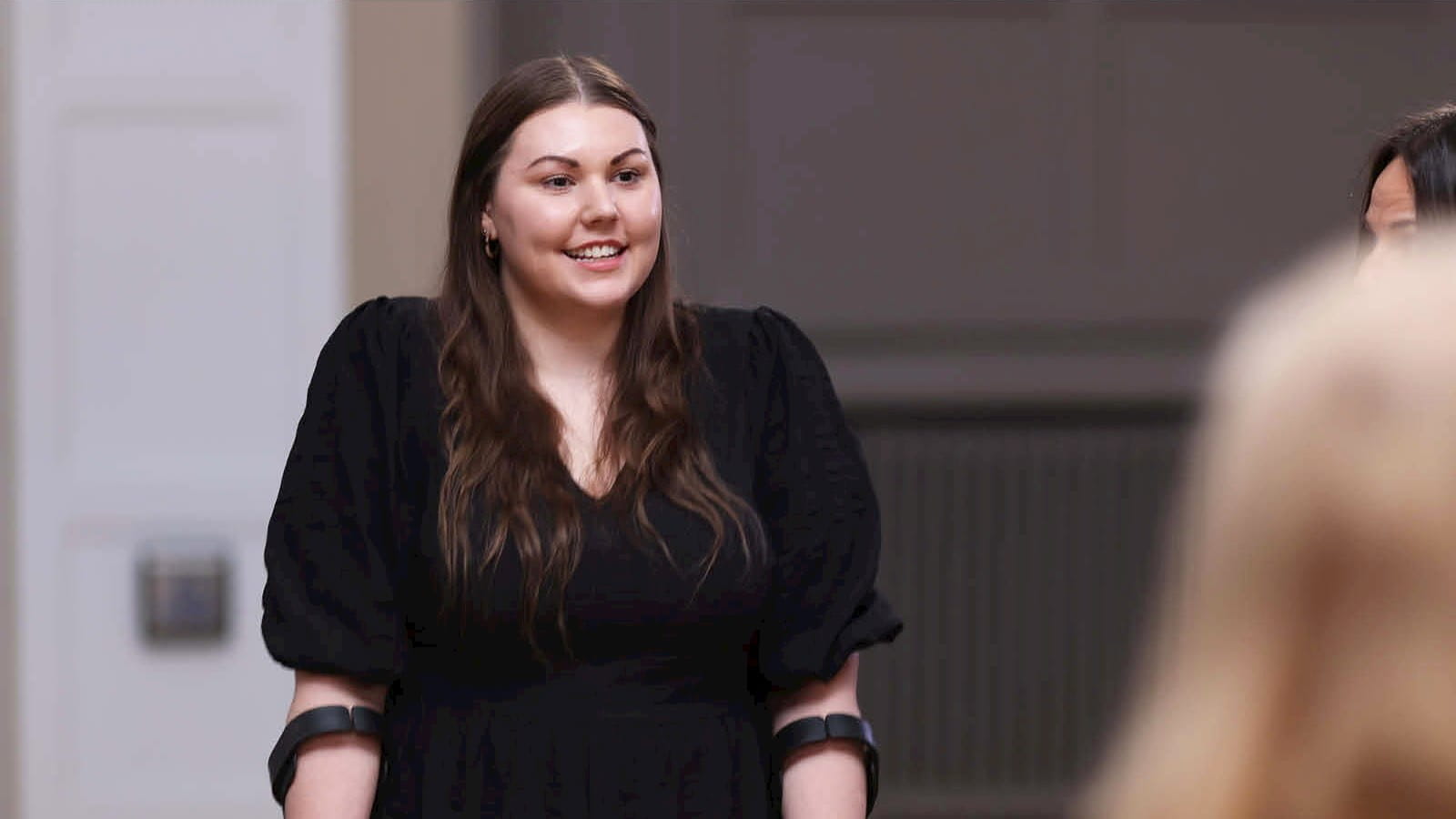The past 18 months have shone a light on the role that diversity, inclusion and belonging plays in organisations’ success. One ICAEW student is playing an important role.
As everyone takes stock of how the COVID-19 pandemic has changed the working world, it’s become increasingly clear that organisations that commit to a long-term diversity and inclusion (D&I) strategy stand a stronger chance of success.
Countless studies, including in-depth research from McKinsey, now show that companies with diverse workforces will outperform industry peers. Diverse teams are better at making good decisions and creating innovative products and services, and research shows that a diverse workforce is better at helping a company navigate crises. In addition, as companies struggle to fill soaring numbers of vacancies, they will miss out on the best talent if they don’t support a diverse and inclusive culture.
This requires financial commitment. It requires organisations to invest not just in training and marketing campaigns but in giving employees the time and backing to work on relevant projects.
Grant Thornton is one such firm that does this, and is keen to disseminate the relevant knowledge and experience as widely as possible. Jenn Barnett, Director, Head of Inclusion, Diversity and Wellbeing at the firm explains how it seconds employees into its inclusion and diversity (I&D) team. “We brought in a secondment model to support the resourcing of the team about 18 months ago. These secondments have grown to give dedicated resources to every strand, so that we are all responsible for I&D and the knowledge doesn’t sit with just a few experts.”
Creating an inclusive workplace
Annabelle Bridges, a Tax Associate at Grant Thornton, is seconded two days a week from the tax team to work on the disability, medical conditions and mental health strand of the firm’s inclusion and diversity strategy. She says, “I am keen to use my secondment role to focus on education and raising awareness of disabilities. There’s a brilliant disability working group – made up of around 40 employees from a range of grades and roles – that meets monthly and I often work with them to discuss ideas and gather feedback. I am putting together a training module for our People Managers to complete around disability, medical conditions and mental health, which will highlight available resources. I have also helped develop and run an I&D training session for our cohort of new trainees across our South team.
“I have also spoken at meetings with our CEO and senior leadership team and it’s great to see that inclusion and diversity is high on the leadership agenda.”
To support employees, there has to be a culture where people are inclusive in everything they do, she explains, and that comes from consistent messaging and behaviour from the top down.
As part of its work on disability, Grant Thornton’s D&I team has recently updated its “reasonable adjustments” process. The UK Equality Act 2010 places a duty on employers in the UK to make reasonable adjustments to help disabled job applicants, employees and even former employees in certain circumstances. Grant Thornton’s new processes make it easier for employees with a disability to obtain the relevant adjustments they need – all of which helps to prevent staff feeling excluded.
Barnett explains how the D&I team collaborated with the disability working group to understand the concerns about the time it took to process reasonable adjustment requests and to agree service level agreements (SLAs) for doing so. “We’re bringing in other providers to support this work and ensure people get the help they need more quickly. We’ve also invested in resources in the central accessibility team so that SLAs can be met,” she says.
Disability and belonging
Annabelle has first-hand experience of this process: “Personally, I have a range of reasonable adjustments in place due to a recent diagnosis of Multiple Sclerosis and the firm has been extremely supportive in getting these implemented.”
She was at Grant Thornton when her symptoms began and says, “I have always felt supported in my career here – by my immediate team, People Manager and the firm. In the past 18 months, throughout the pandemic when working from home and during a period of long-term sick leave, I felt as equally supported as I have working in an office.
“As a trainee currently studying for the ACA qualification, I have felt very supported by my team in terms of returning back to study and my future exam pathway. It is typical that firms often have set pathways for trainees in terms of exams and Grant Thornton has been very accommodating in adjusting this for me.”
But she goes on to say that creating an inclusive workplace for those with disabilities really requires a shift in thinking. “There are lots of disabilities or medical conditions that are not obvious and I think it is extremely important that people take a step back and not jump to conclusions.
“Mindset and communication are equally important, if not more so, than physical adjustments,” she says.
Grant Thornton also works with a range of external providers on disability issues. Annabelle explains how the firm is a member of Business Disability Forum and that it “intends to carry out its Disability Smart Audit in the next few months. We also collaborate closely with the Forum to develop inclusive policies and working practices.”
Grant Thornton has also achieved ‘Disability Confident Level 2’ on the UK government’s Disability Confident scheme, joining in January 2019, and aims to achieve level 3 by the end of 2023.
Diane Lightfoot, CEO of Business Disability Forum, says, “We see more businesses than ever are realising the many benefits of being truly inclusive, both in attracting and retaining disabled talent and meeting the needs of disabled customers. We know that it can be daunting for some organisations, and they may not know where to start or may be afraid of getting it wrong. There are tools and resources to help, but being ready to ask, ‘how can I help you?’ is an important and simple first step.”
The power of belonging
All D&I activity, whether as in-depth as setting a multi-year strategy or as simple as remembering accessibility preferences of meeting attendees, should foster a sense of belonging. As Cornell University defines it: “Belonging is the feeling of security and support when there is a sense of acceptance, inclusion and identity for a member of a certain group. It is when an individual can bring their authentic self to work.”
For Annabelle, creating this sense of belonging can come from “people actively engaging with creating more inclusive cultures, be that acting as an ally for marginalised groups to educating themselves in areas they may have less knowledge of.”
She also feels that all activity to do with belonging and inclusion must start at the top of the organisation. “Accountancy firms can approach creating an inclusive culture by encouraging change from the top down. Inclusion must come from all levels within the organisation and it is our leaders that are able to help shape this. I also feel that there is more to be done around supporting trainees and ensuring that they have the resources they need.”
It’s clear that workplaces that are inclusive and foster a sense of belonging are better places to work and, particularly as we navigate a post-COVID world, that they tend to produce better work as well.
The importance of a safe space

Annabelle Bridges attended the ICAEW Inclusivity Workshop, held in October in London. “I found the workshop to be extremely engaging and thought-provoking,” she says. “It was great to network with others – in person(!) – and to discuss a range of D&I topics, as well as finding out more about people’s own experiences and motivations for attending the event.
“I really enjoyed how the workshop was a safe space and people felt comfortable sharing their own individual experiences that had brought them to the event or passions about D&I.
“Training provider Steps did a great job of bringing common situations to life and this was a really effective way to engage everyone at the workshop and start conversations around what we had seen.”
“I learned so many things from it, but the main thing was about the industry’s commitment to making sure that the accountancy profession is inclusive and the recognition that change must happen to be truly inclusive.”

